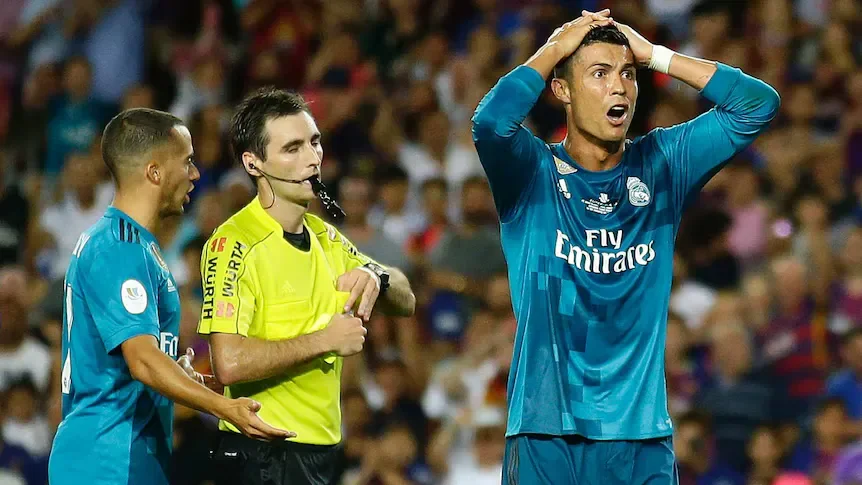Consistency - The wrong Approach
Welcome to issue #04 of Referees Playbook. Each week, I send one short essay that helps sports fans understand the view of a referee.
I hear it all the time - “We just want consistency.”
Picture This:
Ronaldo dribbles into the penalty area, he goes down easy in a challenge, and the reff calls a penalty.
You Know The Scene:
The crowd roars in anger
Replays flash on the big screens
It’s clear the decision was harsh
Ronaldo steps up and scores the penalty
The instinct now for the reff to “be consistent” is strong.
Sure, but what about a referee mistake? Are we meant to chain ourselves to an error?
This is what I call ‘The Referees’ Dilemma’.
—-
The Referees’ Dilemma
Whether it’s:
a referee’s penalty in football
an umpire’s strike call in baseball
an official’s foul ruling in basketball
The demand for consistency echoes through stadiums, commentary, and social media breakdowns.
Fans and coaches demand that referees maintain uniformity in their rulings throughout the game. It’s considered a hallmark of fairness and competency.
But here’s the catch: what if the initial call was wrong?
Should the referee double down on the mistake, penalising teams unfairly for the rest of the match, just to appear consistent?
The Cost of Demanding Consistency
The pursuit of consistency, and the constant demand for it by coaches, crowds, and commentators is misplaced.
Sticking to a wrong decision or aligning a mistake with calls later in a match doesn’t make it right – It compounds the error.
When a referee reverses a call after review, or makes an adjustment after recognising an error, they’re not being inconsistent – they’re reinforcing their commitment to fairness.
An inconsistent approach requires:
A sense of humility
Admission of a mistake
The courage to self-correct
Prioritising the truth over the appearance of consistency.
In the long run, this builds more trust and transparency.
Coaches and fans may grumble about a reversed call, but they’ll respect a referee who strives for accuracy over one who stubbornly clings to a bad decision.
3 Rules For Balanced Consistency
Let’s be clear.
Consistency and predictability in decision making creates a framework for fairness and player acceptance.Players need to know what to expect, and coaches need to feel the game is officiated impartially for both teams.
But consistency should never trump correctness. The goal is to be consistently fair, not consistently wrong.
So how does the reff balance the two?
1. Establish clear standards
Have clarity on the rules, current interpretation, and principles that guide your decisions. People need to know what to expect from you, how to act and approach you.
2. Remain open to feedback and evidence
In sport, this means consulting with your colleagues, self-reflection, reviewing replays and video referral. We get one chance to see scenarios in the flesh, at full speed.
Multiple angles and slow motion can reveal a lot, offering new insights and learnings.
3. Have the courage to admit you were wrong
When new information or the reaction of the game shows you were wrong, have the confidence and courage to put your hand up, accept the mistake, and get the next one right.
I’ve sent a text the following day to a coach admitting and apologising for making critical error. The response was respectful and appreciative.
Beyond The Game
The Referee’s Dilemma is a metaphor for many aspects of life:
Blind consistency can amplify and embed mistakes in your professional and personal lives. Thoughtful reflection and correction drive progress and improvement.
Next time you hear someone demand “consistency”, ask:
Are you asking for fairness, or a repeat of potential mistakes?

